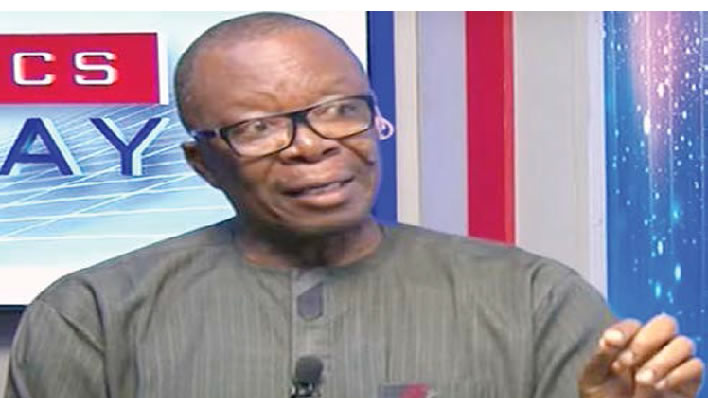
ASUU, parents protest as more varsities hike fees
As tertiary institutions across the country begin a new session next week, the Academic Staff Union of Universities, parents and students started protests as more varsities continue to hike their fees amid a worsening economy.
ASUU as well as the associations of parents and students warned about the likelihood of mass dropouts of students following the hikes in fees by the universities across the country.
The union was worried about the development just as apprehensive parents expressed concerns over the implication of the fee hike for their children and wards in public tertiary institutions.
The National President, ASUU, Prof. Emmanuel Osodeke, frowned on the fee increases, noting that the university is not a profit-making commercial centre.
The management of Obafemi Awolowo University, Ile-Ife, Osun State, announced a new school fee regime on Wednesday.
The decision, according to a communiqué released by the university’s Public Relations Officer, Abiodun Olarewaju, was taken by the school’s Senate at its emergency meeting held on Tuesday.
The statement disclosed that fresh students in the Faculties of Arts, Law and Humanities would pay N151, 200, while returning students of the same faculties would pay N89,200.
Checks by The PUNCH indicated that returning students in Faculties of Arts, Law and Humanities as of the last academic session paid N20,100.
According to the management, new students being admitted into the College of Health Sciences and the Faculty of Pharmacy are to pay N190, 200 while returning students, who paid N28,100 in the last academic session, will cough out N128, 200.
The statement read partly, “For those in the Faculties of Arts, Law and Humanities, the fresh students will pay N151, 200 while returning students of the same faculties will pay N89,200.
“For those in the Faculties of Technology and Science, the new students will pay N163, 200 and the returning students of the same faculties are to pay N101, 200.
“In addition, the new students being admitted into the Faculties in the College of Health Sciences, and the Faculty of Pharmacy are to pay N190, 200 ( new students) and N128, 200 ( returning students), respectively.”
The same scenario was observed at the University of Benin where new fees had been introduced by the management for full-time undergraduate courses for the 2022/2023 academic session.
Before the increment, science students who used to pay N73, 000, are now required to pay N190, 000. Non-science students who used to pay N69, 000, are now mandated to part with N170, 000.
A breakdown of the increment for new science students included exam and lab fees of N30, 000; library N15, 000; sports N5, 000; ICT N5,000; counselling N1,000; utility N20,000; medical charge/life insurance N5,000 and accreditation N24,000.
Other levies included sanitation N7,000; bank/portal charges N5,500; development levy N20,000; students union dues N2,500; orientation brochure N5,000; certificate screening N5,000; academic gown N5,000 and ID card N5,000.
Non-science student are to pay N10, 000 for the laboratory while other fees are the same.
However, after a meeting between the Students Union Government and the school management, the fee was reduced to N105,000 for non-science students and N115,000 for science students.
Subsequently, the non-science students will pay N85, 000 while the science students will pay N95, 000.
Several federal universities began the implementation of increment in fees following the suspension of the industrial action by the ASUU in October 2022.
The varsities which hiked their fees included the Federal University of Health Sciences, Azare; University of Maiduguri; Federal University, Dutse; Federal University, Lafia; University of Uyo; Michael Okpara University of Agriculture, Umudike, among others.
The universities in separate memos attributed the development to the rising cost of learning materials and the need to adequately fund activities in their respective institutions.
So far in 2023, the Bayero University, Kano; University of Lagos, Akoka; University of Jos; and the Obafemi Awolowo University, Ile-Ife had also announced fee increment.
The University of Nigeria Nsukka similarly increased fees payable by undergraduates by 100 per cent across all levels.
A breakdown of the fees structure indicated that the first-year students of the Faculties of Social Sciences, Agriculture Sciences, Education and Arts would pay N110,000; N85,000 for 200 and 300 levels students while final year students will pay N83,000.
This was contained in a statement signed by the Registrar, Dr Christopher Igbokwe and published on the UNN’s website last December.
For the Faculties of Business Administration and Environmental Science, 100 Level students will now pay N114,000, while 200 and 300 levels students will pay N85,000; final year students will pay N83,000.
The statement read in part, “Faculties of Physical Sciences and Biological Sciences will now pay N112,000, N85,000, N83,000.
“The Faculty of Engineering will now pay N116,000 N85,000 and N83,000 for year one, others and final year students, respectively.
“Faculties of Law and Veterinary Medicine will now pay N119,000; N95,000 and N92,000.
“Faculties of Medicine, Dentistry, Pharmacy, Health sciences and Basic Medical Sciences will now pay N120,000; N95,000 and 92,000.”
The hostel fee was also increased to N35,000 annually.
Students’ protests
In response to the situation, some UNILAG students again on Wednesday took to the streets to express their dissatisfaction with the decision of their school authorities.
This marked the second protest by the aggrieved students who were joined by their peers from other universities.
The protesters , who were accompanied by the police and other security personnel, called on the school authorities to lower the fees.
Earlier on Tuesday, the students of the University of Jos, Plateau State, blocked the roads leading to their campus in protest and demanded a reversal of the increase in fees and other levies imposed by the university.
The Secretary General, Great Ife Students Union, Opeyemi Akinboni, said the body had opposed the fee increment at different meetings held with the management.
Akinboni, however, said the leaders of various faculties and departments would meet and decide the next line of action.
He further said, “In my faculty, as of last session, we paid N28,100; students in Faculties of Science and Agric also paid the same amount. The increment is shocking. The students’ union body had several meetings with the management on the issue and we have always made it known to them that OAU is an indigent school.
“Majority of the students on OAU campus are striving to make both ends meet. With this increment now, most returning students will not even return. We have some faculties where students pay N20, 000 and they have now increased it to N89,000.
‘’Currently, we are reaching out to faculty, departmental presidents. We want to reach out to them and then discuss the next line of action.”
Condemning the decision by the school authorities, Osodeke said the Nigerian constitution prescribed free education but the parents, he noted, were paying for it.
He warned that the nation was not funding the education sector adequately, arguing that no nation could survive high students’ drop-outs.
The don stated, “The university is not a commercial centre where you break even or not. The constitution says education should be free but parents are already paying for the fee increment.
‘’Why is Nigeria not doing what other African countries are doing? The West African average says budgetary allocation for education should be between 15 and 20 per cent but here in Nigeria. We got just 3.8 per cent last year.
‘’No educational system will survive with this and a lot of our students will drop out. We should not allow our children to become nuisances on the streets, the government should handle education the way it was done in the 70s and 80s.’’
The ASUU leader counselled the Federal Government to give priority attention to education, adding that the universities were poorly funded.
‘’The N11m that the government gives the UNILAG for one month is not even enough to cover its electricity bill for that month, whereas senators earn more than this.
The government should give priority to education at primary, secondary, and university levels. Go around and you’ll see children roaming around; this is going to be a problem for our country in the future, while the children of the rich are paying millions to get an education outside the country,’’ the Professor of Soil Science noted.
SSANU reacts
The National President, Senior Staff Association of Nigerian Universities, Mr Ibrahim Mohammed, observed that it might be hard to run the public universities without government funding.
According to him, the public universities do not receive sufficient funds to cover their overheads, insisting that no tertiary institution can survive under the current dispensation if they did not hike their fees.
The SSANU leader said, ‘’Government should prioritise its needs and let us know i





